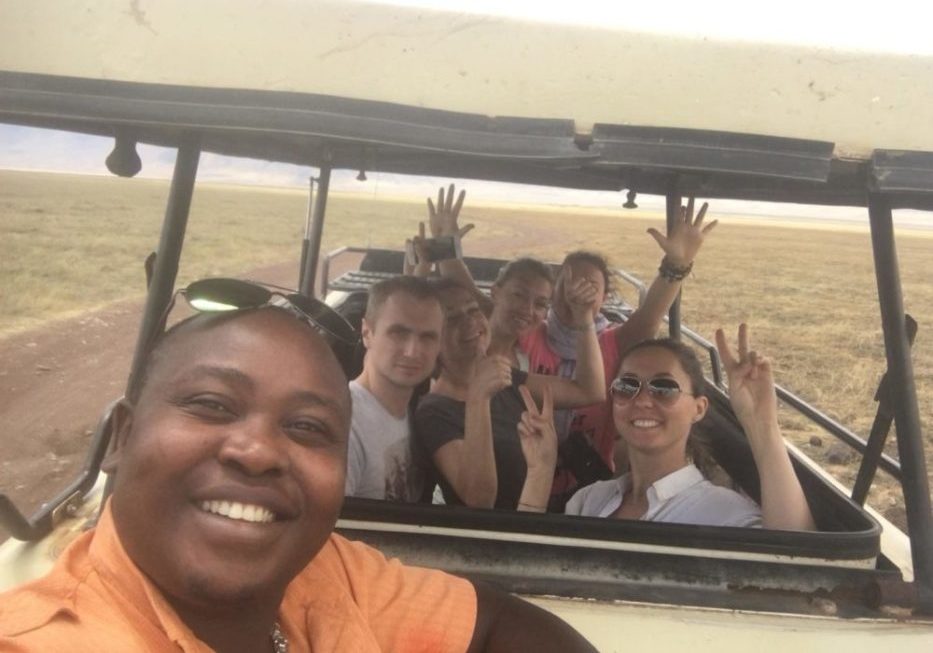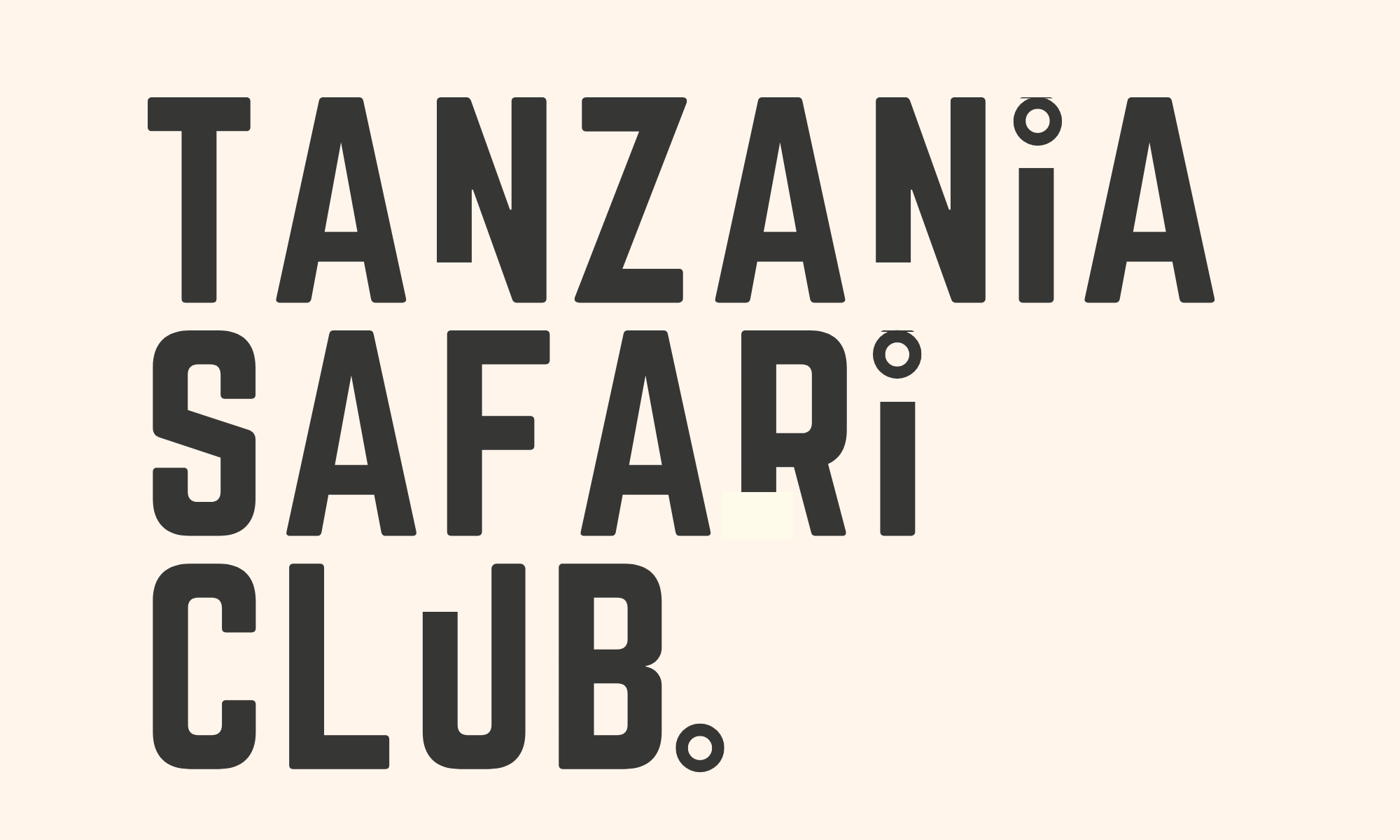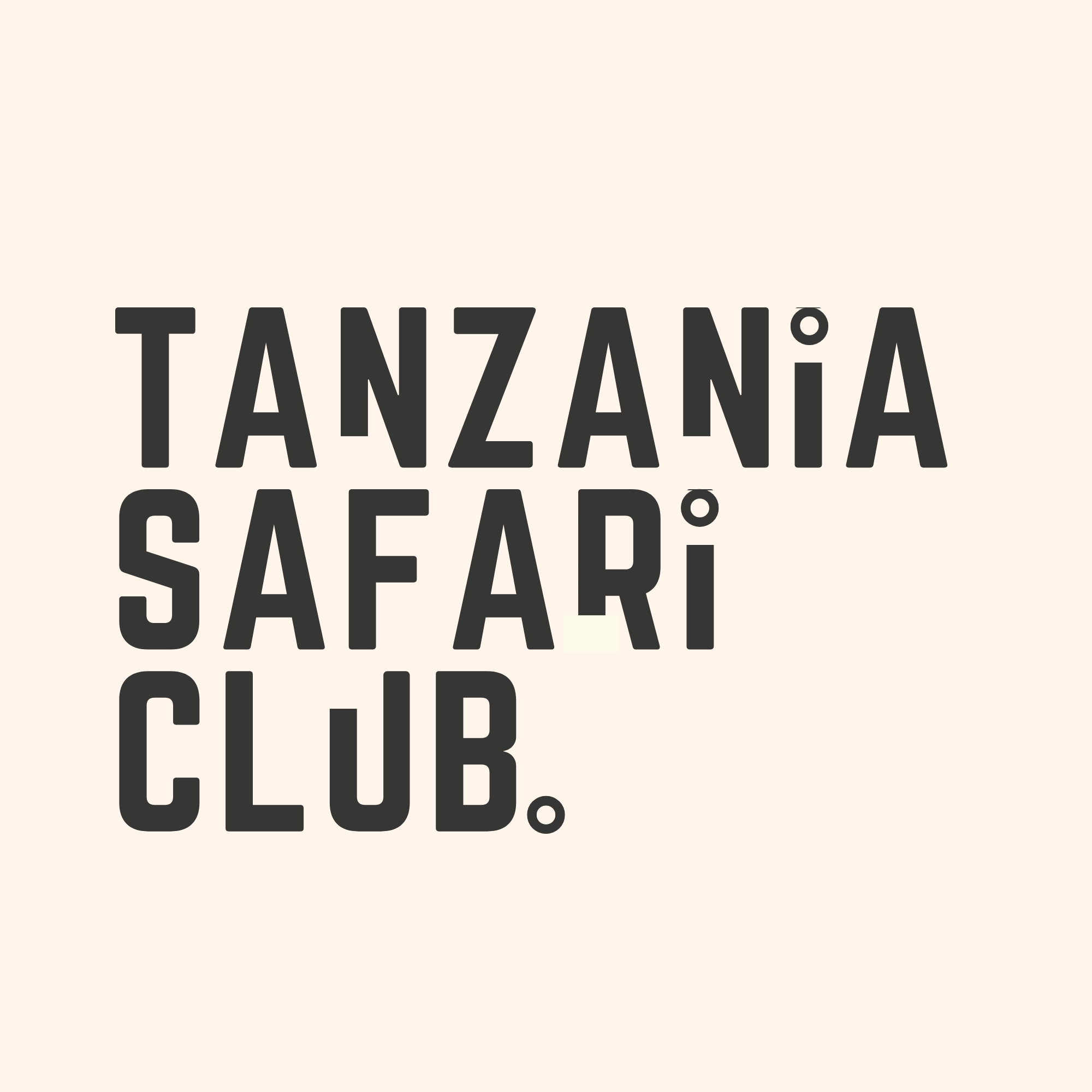Kiswahili is a beautiful free-flowing language that is the most spoken language in East Africa. Swahili is the main language in Tanzania, Kenya, Parts of Uganda & Parts of the Congo, among lots of other pockets.
We believe that if you’re travelling for a Safari tour then learning a little Swahili will massively enrich your experience. Although many Swahili people have a good grasp of English, and other European languages, it is both polite & safer if you know some basic Kiswahili. So here are essential Swahili words and phrases to learn before your Safari Adventure.
Before we continue: if you learn better with an audiobook you can get one for free on Audible. Just set up a new account and you can learn Swahili for free.

Table of Contents
Shkiamoo (shka-moo)/Habari (ha-ba-ri) & Mambo (mam-bo) – ‘Hello & How are You’ in Swahili
Hello is a confusing one for many native English speakers. This one has caught me out a few times when returning to Tanzania after speaking to native English speakers. In English an appropriate response to ‘Hello’ is to return a greeting of ‘Hello’; this is different in Swahili – a greeting works as a call & answer. Habari is the most common greeting used and it literally translates to ‘news’ – almost like when we say ‘How are you?’. So when responding to Habari you would say Nzuri (fine/nice/good), Safi (clean), Salama (peaceful) or even Mbaya (bad). Then you would return the greeting Habari.
Your greeting may also change depending on who you are speaking to. For instance, you would say Shkiamoo to an elder – it very roughly translates to ‘I respect you’. The answer you will get back will be will be Maraba (Ma-ra-ba) which basically means ‘I accept your respect’. Then a greeting will be returned. Often ‘Jambo’ where you are to reply ‘Si Jambo’. And the greetings go on. Habari za Leo (How is the day?)
A very casual greeting, which you will hear a lot is Mambo (which means ‘things’) (or Jambo in Zanzibar) – this means ‘what’s up?’. Generally, you can respond with Poa (Po-ah) which means which is used like ‘cool’. Then a greeting will be returned. Be very careful when using Mambo to elders as it can seem rude – if you’re in any doubt just use Habari.
This may be a bit confusing now but to ask somebody, ‘How Are You’ you will ask Hujambo. This is an acceptable way of starting a conversation after the initial greeting.
Naomba (na-oum-ba)- ‘I would Like…’
‘I would like’ is a phrase that you will always use. It is the politer version of ‘Na Taka’ which translates to ‘I want’ which may be considered rude depending on the circumstances (for instance, if you are in Kenya where Na Taka is acceptable).
Firstly there are two ways to say this phrase – Ninaomba or Naomba. It is similar to ‘I’d like’ and ‘I would like’
You can use this to ask for almost anything – for example, if you order a beer at the bar (Naomba Beer – ‘I would like a beer’), ordering your lunch (Naomba Samaki Na Wali – ‘I would like Fish &/with Rice’) or if you want to go somewhere… for instance, if you need the toilet (Naomba Kwenda Msalani– ‘I would like to go to the bathroom‘). That is a good one for a long game drive and you have drunk too much water.
If you wish to say ‘I don’t want’- you will say Si Taki– for instance: ‘I don’t want spice’ would be Si Taki Pili Pili. Otherwise, you could say Si Taji which means ‘I don’t need’. So – Si taji maziwa ou sucari (I don’t need milk or sugar).
Ndiyo (Nn-di-yo)/ Hapana (Ha-pah-ah)- Yes, and No
In Kiswahili, Ndiyo means ‘Yes’ and Hapana means ‘No’. These are pretty straightforward and do not need so much explaining. Una taka Pili Pili? (Would You Like Spice?) ‘Hapana, si taki Pili Pili’ (No, I don’t want Spice).
‘Asante (Ah-san-tay)- Thank You in Swahili
Thank you is a phrase that everyone should know in any native language before they travel to another country. It is polite, shows respect and will earn you some rather large smiles. Thank you in Swahili is the easiest phrase to learn and will be one that you use a lot – especially when you’re travelling from place to place, and meeting people along the way. . There isn’t too much more to say about Asante other than to say Sana which means ‘very’. Asante Sana translates to ‘thank you very much’.
Karibu (ka-ri-bu) – Welcome/ You’re Welcome in Swahili
Karibu is almost always the phrase you hear first when you arrive somewhere and it ties in quite nicely with the word above. Karibu mean ‘You are Welcome’ in Swahili and is used in a variety of different situations. It can be used to Welcome somebody into your home, to invite somebody to do something or to appreciate somebody saying thanks (some people say ‘ayah’ too).
If you are hitting the tourist routes you will no doubt come across some street vendors – often the call Karibu (Karabuni is plural if there is more than one of you) to invite you to see what they have on offer. They are saying ‘You’re Welcome’ in Swahili. It is polite to reply with Asante even if you don’t stop and walk past. Otherwise, when somebody says thank you- the response is Karibu or Karibu Sana.
Mimi Ni Mgonjwa (m-gon-jwa)- ‘I am Sick’
![]()
Like many places in the world, you are likely to get sick while your body is adjusting to the new bacteria in the warmer climates. Usually, you should be absolutely fine when your staying in a big hotel but sometimes if the kitchen washed the salad in tap water/you have ice cubes in your drink, you may get the ‘Jungle Rumble’, ‘Deli Belly’ or whatever you wish to call it.
You can’t always avoid getting sick and it is a fact of life for westerners in East Africa. It is important to know what to say to a doctor if things go south.
Generally, Mgonjwa means that you are ‘Sick’. By changing the prefix you change the subject – Mimi Ni (I am), Wewe Ni (You Are) and Yeye Ni (He/She is). Another one to say is Nina Kuraha which means ‘I have Diarrhoea’. Mimi Ni Mgonjwa. Nina Kuharisha (Ku-ha-ri-sha). If you say that to a pharmacist, or a local they will know exactly how to help you. In saying that you should always keep some rehydration salts, anti-sickness, anti-diarrhoea & always have a bottle of water with you if you feel runny.
Nishingapi (Ni-Shin-Gapi)- ‘How Much Does it Cost?’
Quite often in Tanzania, you may find yourself haggling for the price of an item. Most little stalls or shops do not have a price. Shingapi is the general term for asking the price of something. Whether that is the price of a Banana (ndizi) or a trip on a Bajaj (tuk tuk) you can use the term to understand how much it is going to cost you.
Numbers
Knowing your Swahili numbers is pretty important for almost everything. When you are getting the bill, asking for the price of something, counting etc…. It is fun to practice counting in a new language and it will be a skill you will likely have for as long as you keep practising- it will be very handy on your second trip to Tanzania! Read more about the numbers here.
Angalia (an-ga-lia)- ‘Look/To see’
This is not a particularly essential word or phrase, but it is a good one to play around with while on safari. The phrase Angalia means to look or to see- for instance, you can use it to say- Angalia Simba which means ‘Look, there is a Lion’. It is quite a cool one to use with each other to get to grips with the language and will help you learn the Swahili for the Safari Animals.
Goodbye/See you Later/Goodnight In Swahili
What better way to finish off the blog post than to learn how to say goodbye in Swahili. I have put all three phrases together because they are all handy. Firstly, to say goodnight is quite an easy one; it is Lala Salama which literally translates to sleep (lala) peacefully (Salama). It takes its roots is in Arabic from the Ottoman rule in the 18th century.
Finally, Just like in English, there are two ways of saying goodbye in Swahili. Tutaonana Baadye (tu-ta-oh-nana Ba-die) can mean ‘Goodbye for now’ or ‘See You Later’ which is can be used when you are leaving somebody and you will know you will see them again. To say goodbye in Swahili for a longer period or forever is Kwa Heri (as it reads). It is what you will say at the airport to your guide- a sad goodbye.
Thank you for reading the blog – Swahili is a beautiful language and is really fun to learn. Our partnered guides are excellent teachers and will surely help you on your way!
Astane kwa kusoma blog! Tutaonana Baadye Rafiki.


